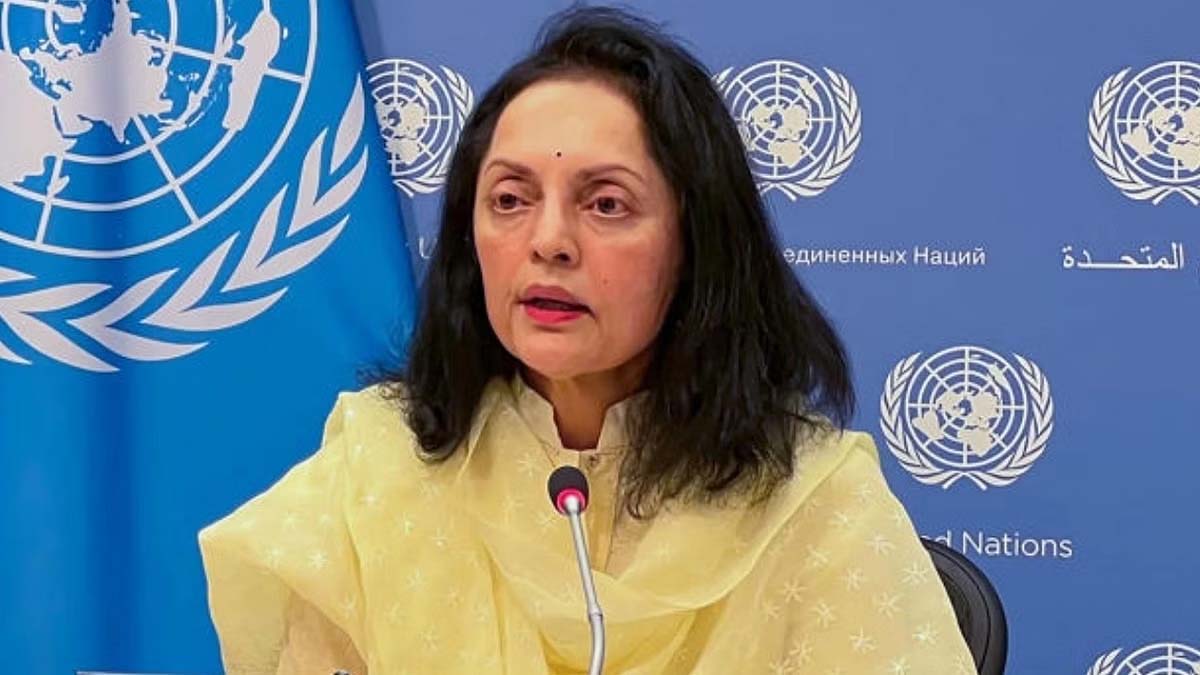The United Nations witnessed a comprehensive proposition put forth by India on behalf of the G4 nations concerning the reform of the Security Council. This proposition advocates for the inclusion of new permanent members democratically elected by the General Assembly and exhibits a flexible stance on the contentious issue of veto powers.
Participating in the Intergovernmental Negotiations on Security Council reform (IGN) on Thursday, Ambassador Ruchira Kamboj, India’s Permanent Representative to the UN, emphasized that the UN’s imminent 80th anniversary serves as a pivotal juncture to make tangible progress on this longstanding matter.
Kamboj presented the ‘G-4 model’ on behalf of Brazil, Germany, Japan, and India for scrutiny, discourse, and eventual negotiations. The proposed framework garnered substantial support from the broader spectrum of UN members.
Acknowledging that the geopolitical landscape has evolved since the Council’s establishment in 1945, Kamboj underscored the imperative for adapting to contemporary realities. The G4 model suggests expanding the Security Council’s membership from the current 15 to 25-26, encompassing six new permanent members and four or five non-permanent members. Notably, two new permanent members each are proposed from African and Asia Pacific states, one from Latin American and Caribbean states, and one from Western European and Other states.
The G4 model contends that the existing composition of the Security Council, with its glaring under-representation and non-representation of key regions, undermines its legitimacy and efficacy. It emphasizes that the Council’s inability to address critical conflicts jeopardizes international peace and security, necessitating urgent reform.
Kamboj stressed that any reform overlooking the issue of representation, especially in the permanent category, would exacerbate current imbalances and render the Council ill-equipped to tackle contemporary global challenges.
Crucially, the G4 model remains non-specific on which member states would occupy the new permanent seats, leaving that decision to a democratic and inclusive election by the General Assembly.
Addressing the contentious veto issue, Kamboj proposed flexibility, asserting that new permanent members would, in principle, share responsibilities with current permanent members but refrain from exercising the veto until a decision is made during a review. She emphasized that the veto issue should not impede the reform process and should be subject to constructive negotiation.
Currently, veto powers rest solely with the five permanent members—China, France, Russia, the UK, and the US. Kamboj underscored the urgency for reform, pointing to the upcoming Summit of the Future in September and the UN’s 80th anniversary next year as crucial milestones for making concrete progress.
In echoing support, France’s Permanent Representative to the UN, Ambassador Nicolas De Riviere, expressed longstanding support for the permanent membership candidacy of India, Japan, Brazil, and Germany. The US also acknowledged the majority of UN member states, including all 54 African countries, supporting the expansion of both permanent and non-permanent seats on the Security Council. Emphasizing representation reflective of the present world, they advocated for an overhaul that aligns with current realities rather than those of the post-Second World War era.









